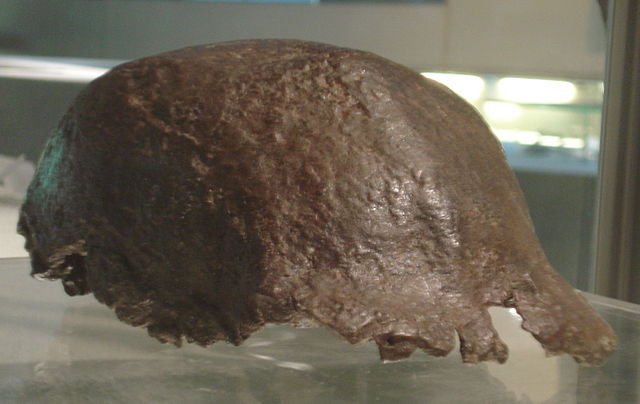The Netherlands to return Dubois fossil collection to Indonesia

The Netherlands is returning a major archaeological collection to Indonesia, including the skullcap discovered by Dutch scientist Eugène Dubois in 1891 which provided the first evidence of an extinct human species.
The so-called Dubois collection consists of some 28,000 fossils and has been held in the Netherlands for more than a century. It will be returned after the cabinet accepted advice from the independent Commission for Colonial Collections.
Among the items are a molar and thigh bone of homo erectus, originally described by Dubois as the “Java Man.” His discovery was initially dismissed as apes’ bones, but later recognised as belonging to one of the extinct human species that lived alongside early homo sapiens. In the late 19th century, the find was hailed as the “missing link” in human evolution, as envisaged by Charles Darwin.
The commission said the fossils were never legally the property of the Netherlands, and that they were taken by force. “Fossils were of spiritual and economic importance for local communities, and force was used to identify excavation sites,” the commission said.
Indonesian culture minister Fadli Zon welcomed the decision, calling the return “a step towards healing historical wounds” and “the restoration of a broken chain of cultural heritage.”
It is the sixth time that the Dutch government has acted on the commission’s advice to repatriate objects. Earlier this year, 113 bronze statues were returned to Nigeria.
The Dubois fossils remain important for science, and Naturalis in Leiden has been working with Indonesian researchers for years to study them. Indonesia formally requested their return in 2022.
The timing of the transfer has not yet been set. Acting culture miniser Gouke Moes said further preparation was needed to ensure it was carried out carefully.
“Together with Naturalis and our Indonesian partners, we will take the same care in organising the transfer. Indonesia and the Netherlands both consider it important that scientific research with this collection continues,” she said.
The collection is expected to go on display at the National Museum in Jakarta, where Zon said it would be open to the public daily.
Thank you for donating to DutchNews.nl.
We could not provide the Dutch News service, and keep it free of charge, without the generous support of our readers. Your donations allow us to report on issues you tell us matter, and provide you with a summary of the most important Dutch news each day.
Make a donation